69 CE: The Year of the Four Emperors
The Year of the Four Emperors (69 CE) is one of the most chaotic periods in Roman history, occurring after Emperor Nero's death and marking a transitional phase from the Julio-Claudian dynasty to the Flavian dynasty.
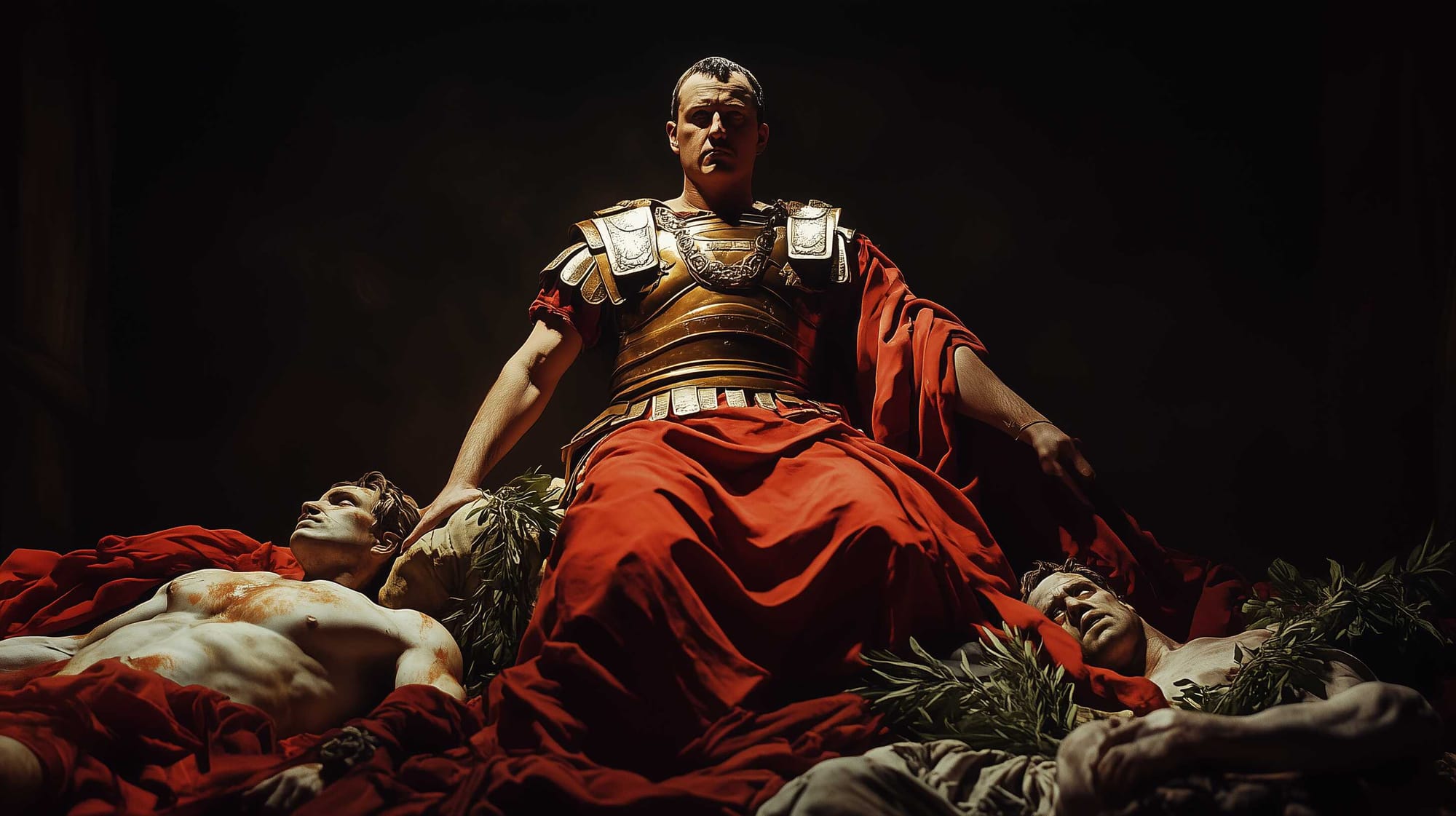
The year 69 CE stands as one of the most tumultuous in Roman history—a year in which the mighty empire saw four emperors rise and fall in rapid succession. Known as the Year of the Four Emperors, it began with the death of Nero and the collapse of the Julio-Claudian dynasty, setting off a chain reaction of political instability, civil war, and shifting allegiances.
The year ended with the ascension of Vespasian, whose rise marked the dawn of the Flavian dynasty and a return to stability after months of chaos. This dramatic sequence of events is a perfect example of the fragility of power, the ambitions of Rome’s leaders, and the complex dynamics of the empire's military and political machinery.
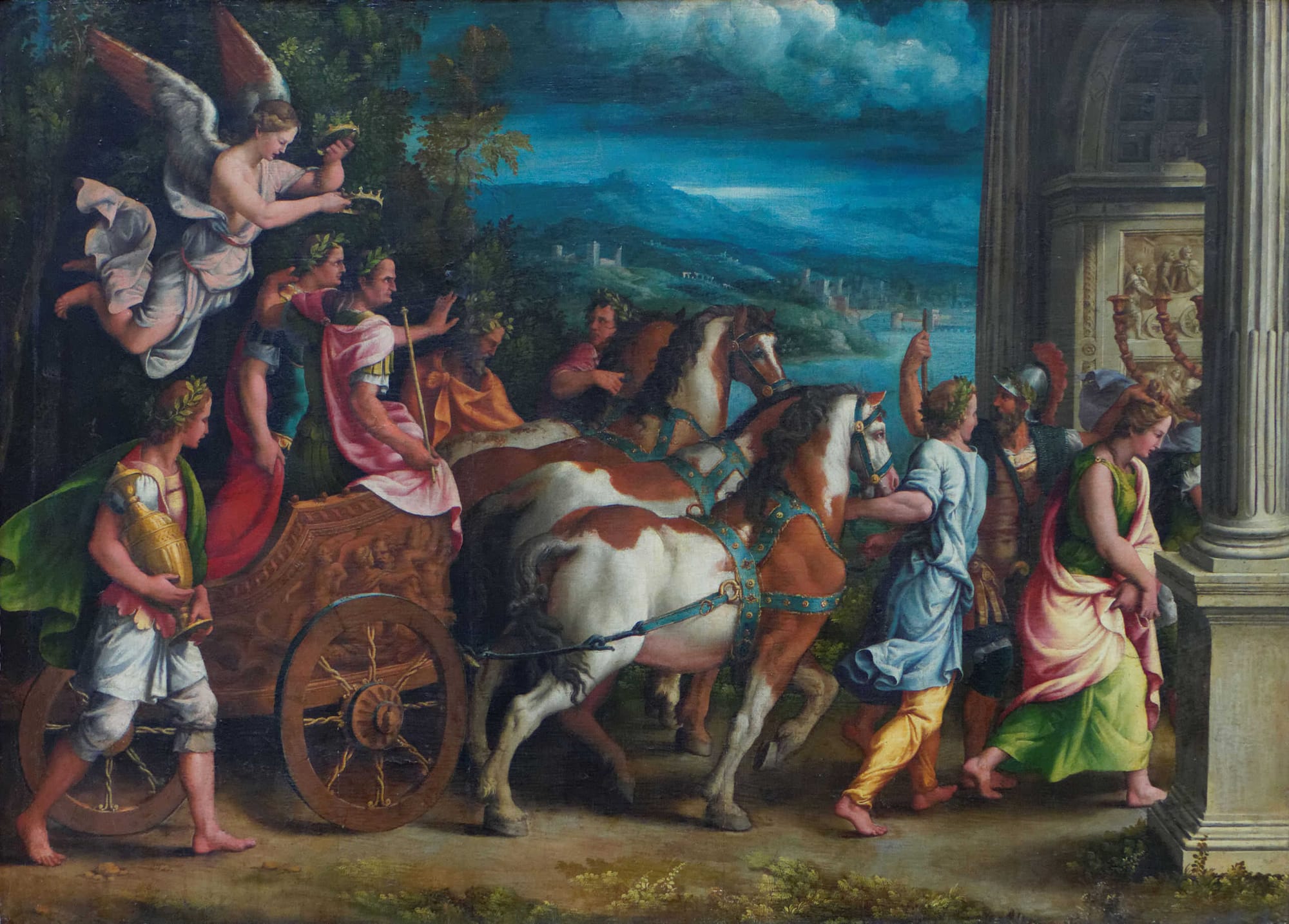
A Year of Turmoil: The Rise and Fall of Rome's Four Emperors in AD 69
A single year saw the rise and fall of Galba, Otho, Vitellius, and ultimately Vespasian, who managed to stabilize the empire and lay the foundations for the Flavian dynasty. Let us explore the timeline of events that led to a ‘bloodbath’ of emperors, through the lens of each person that came into power after Nero’s catastrophic leadership.
Galba (Servius Sulpicius Galba)
Galba, a senator from a noble and distinguished family, rose to prominence through his long and storied career under various emperors. Initially a governor and general in the Roman provinces, Galba's reputation for strict discipline and adherence to traditional Roman virtues made him a suitable candidate to oppose Nero during the emperor's final days.
When Nero's authority crumbled due to widespread revolts, Galba declared himself emperor with the backing of the Senate and the military. Upon arriving in Rome, Galba attempted to restore order and rebuild trust in the imperial office.
However, his measures, particularly financial austerity and refusal to reward key supporters, alienated many. His critical misstep was his failure to reward the Praetorian Guard, whose loyalty was essential for stability.
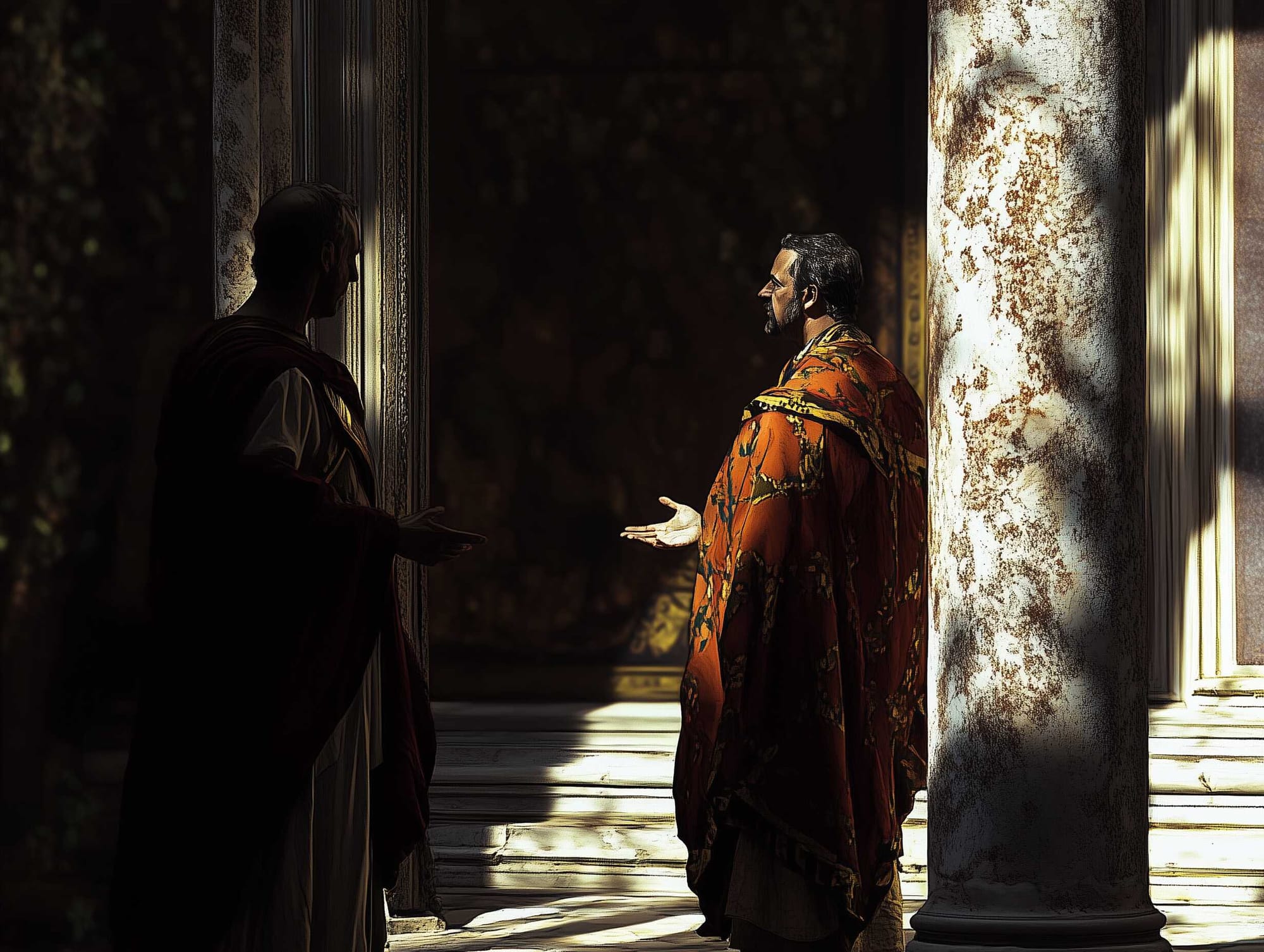
Furthermore, his decision to adopt Piso Licinianus as his successor instead of his ally Otho created a rift that led to conspiracy and betrayal.
A possible representation of Roman Emperor Galba, discussing with Piso Licinianus on his succession. Credits: Roman Empire Times, Midjourney
Galba's reign ended abruptly when Otho, feeling spurned by his exclusion from succession, orchestrated a coup. Galba and Piso were assassinated by soldiers loyal to Otho on January 15, 69, just seven months after Galba had assumed power.
Otho (Marcus Salvius Otho)
Otho was initially a supporter of Galba, expecting to benefit from his association with the new regime. However, when Galba adopted Piso as his heir, Otho saw his ambitions thwarted and plotted to seize power. Exploiting the discontent of the Praetorian Guard, he gained their allegiance through bribes and promises.
Otho's reign began with an immediate challenge from Aulus Vitellius, a rival proclaimed emperor by the legions of the Rhine. Although Otho had strong support in Rome and the surrounding regions, he faced a decisive military confrontation with Vitellius' forces. Despite initial optimism and a series of strategic moves, Otho's forces suffered a critical defeat at the First Battle of Bedriacum in April 69.
Demonstrating a rare sense of honor and a desire to avoid further bloodshed, Otho chose to end his life rather than prolong the civil war. His suicide, just three months after becoming emperor, marked a poignant end to his brief but tumultuous reign.
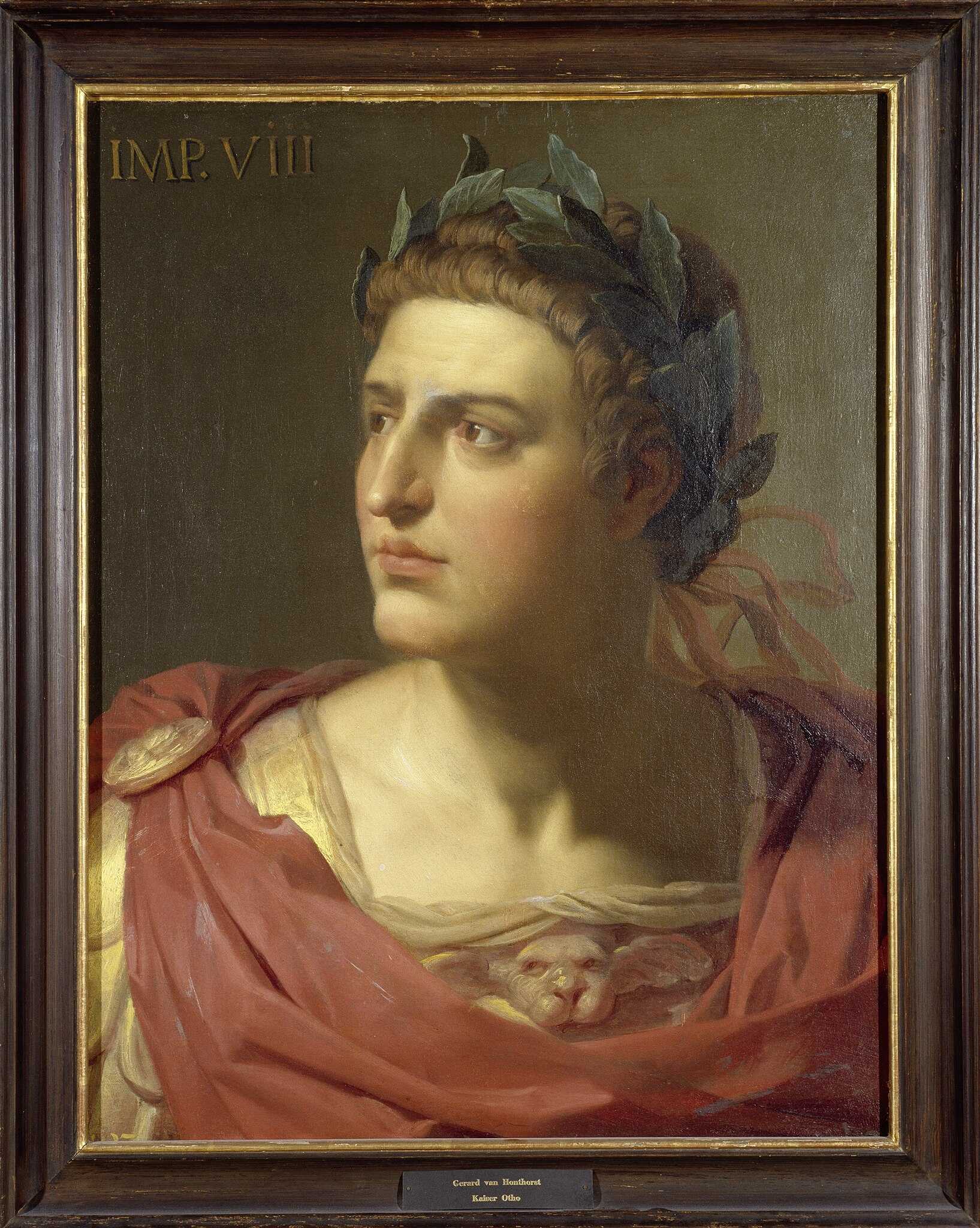
Vitellius (Aulus Vitellius)
Vitellius rose to power as the choice of the legions in Lower Germany, where he had been governor. His soldiers, particularly the legions of the Rhine, were eager to assert their independence and saw in Vitellius a figurehead for their ambitions. Declared emperor in January 69, Vitellius quickly advanced toward Italy, gaining support from disillusioned Roman factions.
Upon Otho's suicide, Vitellius was unopposed and entered Rome as the new emperor. His reign, however, was marked by excesses, including lavish feasts and public spectacles, which drained the imperial treasury. His appointments, often driven by personal favoritism, weakened his administration.
His rule was challenged when Vespasian, commanding legions in the East, was proclaimed emperor by his troops. As Vespasian's forces, led by generals like Antonius Primus, marched on Rome, Vitellius found his position increasingly precarious. Despite attempts to negotiate and rally support, he was ultimately betrayed and captured. He was executed on December 20, 69, and his body was desecrated by the mob.
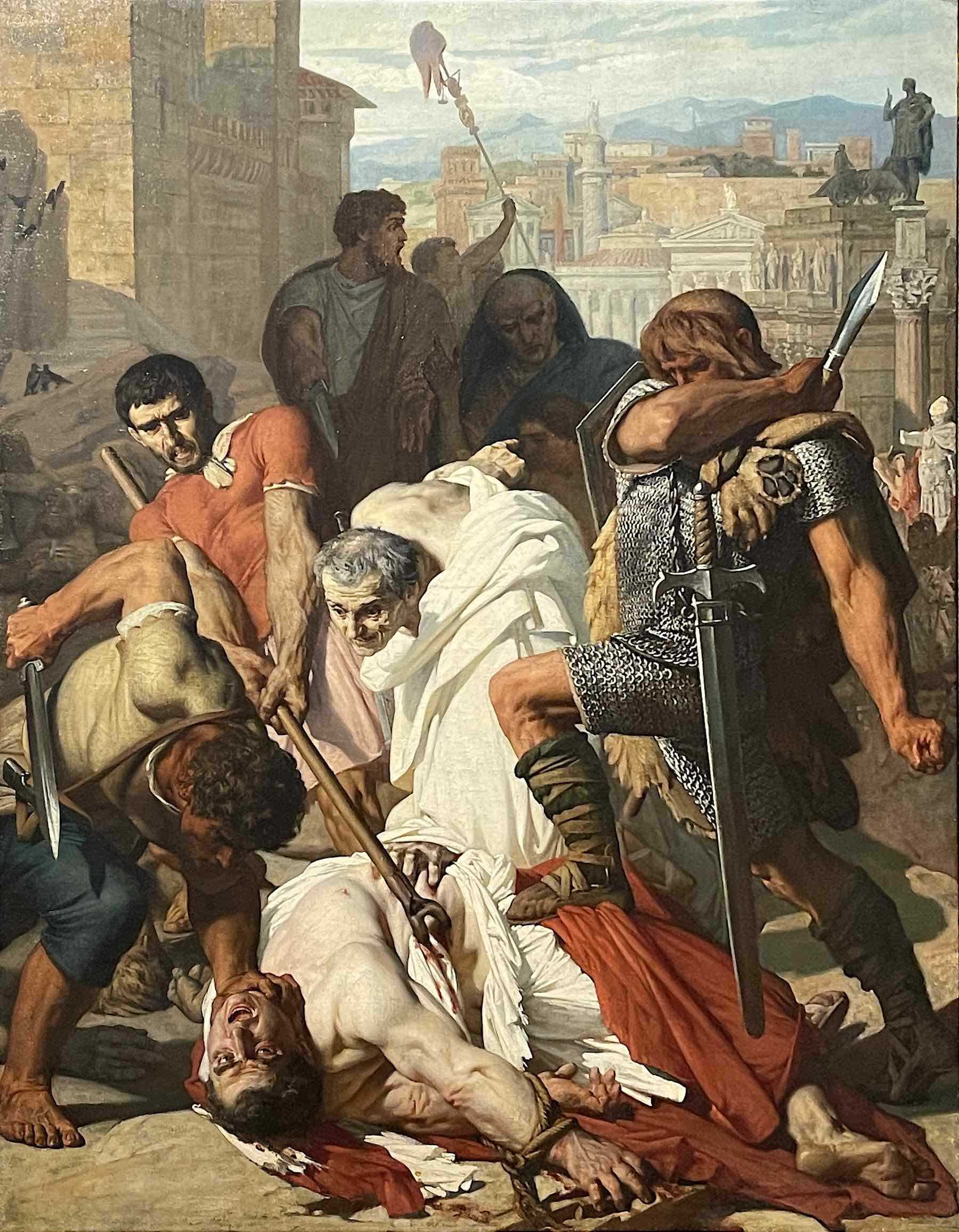
Vespasian (Titus Flavius Vespasianus)
Vespasian's rise marked the end of the chaos. A seasoned general with extensive experience in the provinces, he had been leading the Roman campaign in Judaea when the civil war began. Encouraged by allies and recognizing the instability of Vitellius' rule, he declared himself emperor in July 69 with the support of the Eastern legions.
Vespasian's forces, led by skilled commanders such as Mucianus and Antonius Primus, secured victory over Vitellius' troops in a series of battles. Rome itself was captured after significant fighting, and he was overthrown. Meanwhile, Vespasian consolidated his position by securing loyalty in the provinces and ensuring the cooperation of key officials.
Arriving in Rome in the aftermath of the conflict, Vespasian focused on restoring order and rebuilding the empire's finances and infrastructure. His pragmatic approach and emphasis on discipline and efficiency earned him the respect of both the military and the Senate. Vespasian's reign inaugurated the Flavian dynasty, bringing stability after a year of turmoil. (The Year of the Four Emperors, by Kenneth Wellesley)
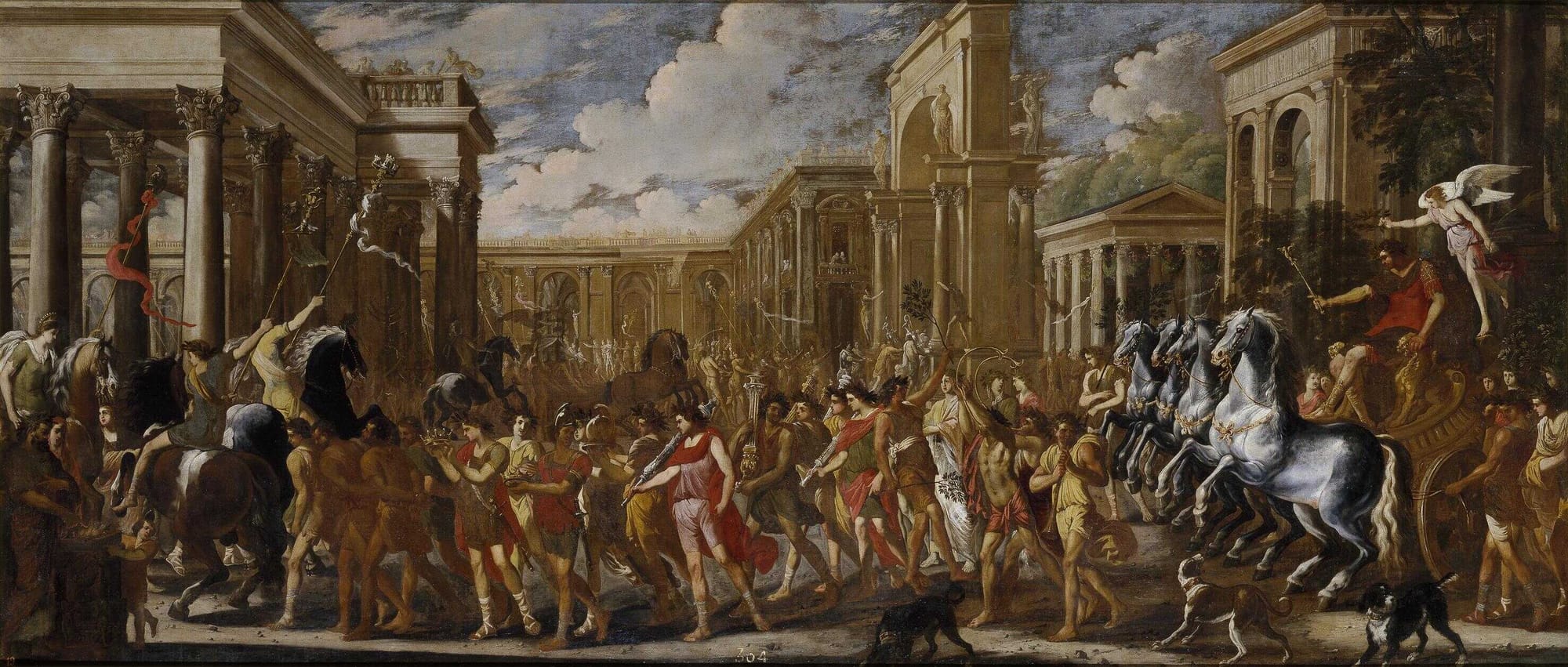
The Long Year of 69 CE: A Deep-Dive Analysis
Jon Mark Holtgrefe in his thesis, “The Characterization of civil War: Literary, Nomismatic and Epigraphical Presentations of the Year of The Four Emperors” presents—among other things—the works of 5 authors who wrote about the year 69 CE (the one year in all antiquity for which we have the most detailed information): Josephus, Plutarch, Tacitus, Suetonius, and Cassius Dio.
He analyzes the first four but not Cassius Dio, because he wrote 150 years later while the first four were contemporaries or near-contemporaries of the events of The Year of The Four Emperors. The year 69 CE stands out in Roman history for its dramatic events, fascinating individuals, and the survival of rich historical accounts by several ancient authors.
Known as the "long year," it was a period marked by a devastating civil war and the recognition of four emperors—giving rise to its more famous title, "The Year of the Four Emperors." These events included two significant battles between Roman legions, the violent deaths of three emperors—two killed by mobs and one by suicide—and the catastrophic burning of the Temple of Jupiter Optimus Maximus.
However, what truly distinguishes 69 CE as the "long year" is not just the turmoil it witnessed but the unparalleled level of detail preserved about it. Among all ancient years, this one offers the most comprehensive historical record, thanks to the extant writings of the historians we aforementioned. Their accounts, supplemented by coins and inscriptions, allow modern historians to reconstruct the events of this year with remarkable precision, often narrowing uncertainties to a matter of days.

This abundance of documentation makes 69 CE uniquely significant in the study of antiquity.
A possible representation of Roman scrolls. Credits: Roman Empire Times, Midjourney
This wealth of information also reveals vivid portraits of key figures who shaped the events of 69 CE. Yet, understanding these characters involves navigating the perspectives of the authors who described them. Each writer presented their own interpretation of the year's events and individuals. While the general facts align, their opinions and characterizations diverge, reflecting the authors' distinct biases and intentions.
Scholars have long debated which of these accounts is the "most accurate." However, the subjective nature of characterization complicates such evaluations. A seemingly balanced or unbiased portrayal does not necessarily equate to accuracy. Instead, what can be definitively gleaned is each author's perspective on the events and individuals they described.
These differing portrayals also provide insights into the cultural and social attitudes of the authors' respective times. The ways in which ancient historians and chronographers chose to depict characters reveal as much about their own beliefs and values as they do about the historical figures themselves. This interplay between historical narrative and authorial perspective enriches our understanding of how these monumental events were perceived in antiquity.
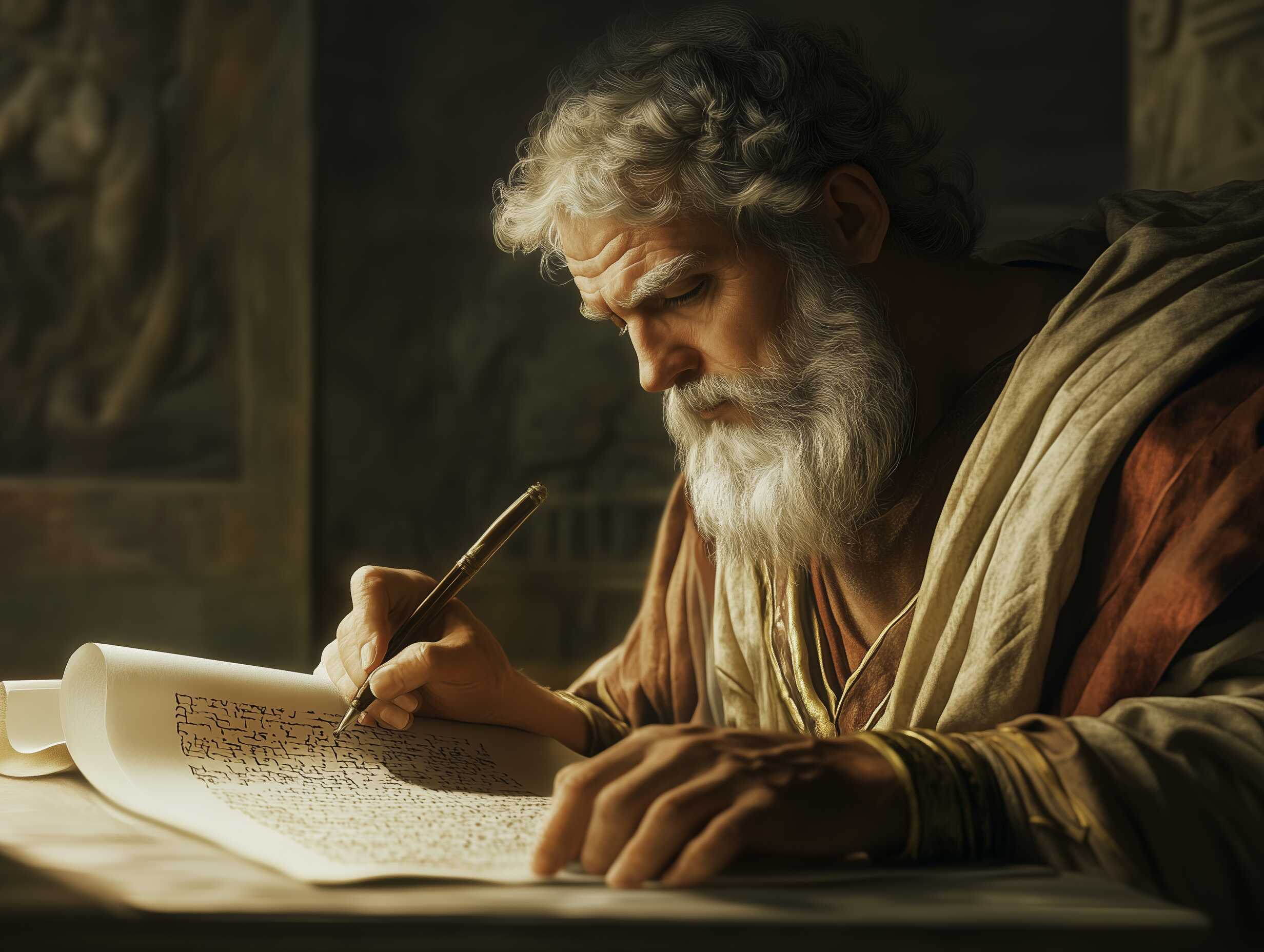
Comparing the Different Perspectives
This famous year was marked by political upheaval and civil war. The four emperors who rose and fell during this time—Galba, Otho, Vitellius, and Vespasian—have been analyzed through the lenses of ancient historians Tacitus, Josephus, Plutarch, and Suetonius.
Let us analyse each writer’s unique insights and delve into their character, leadership, and legacy, reflecting their historical context, personal biases, and narrative style of each one, while interpreting the different emperors’ role and moral elements.
Galba: An Idealist Misplaced in a Corrupt Age
Tacitus portrays Galba as a principled but impractical leader, whose austere virtues alienated those around him. Tacitus laments his inability to navigate the complex demands of the Principate, stating that Galba “seemed greater than a private citizen but less than a ruler.”
His fatal decision to withhold a donative from the Praetorian Guard cemented his downfall, despite his intentions to restore morality to Rome. Tacitus emphasizes Galba’s tragic nobility at his death: “He offered his throat, saying, ‘Strike, if it be for the Romans’ good.’”
“On catching sight of the approaching party of armed men, an ensign belonging to the cohort which formed Galba's escort — Atilius Vergilio, according to the tradition — ripped from his standard the effigy of Galba and dashed it to the ground, a clear indication that all the troops supported Otho.
It was also a signal for a mass exodus of the civilian populace from the Forum. Swords were drawn to deal with recalcitrants.
Near the Basin of Curtius, the panic of his bearers caused Galba to be flung sprawling from his chair.
His last words are variously recorded by the conflicting voices of hatred and admiration. Some say that he grovelled, and asked what he had done to deserve his fate, begging a few days' grace to pay the bounty.
The majority of the historians believe that he voluntarily bared his throat to the assassins, telling them to strike and be done with it, if this was what seemed best for the country.
Little did the murderers care what he said.”
Tacitus, Histories
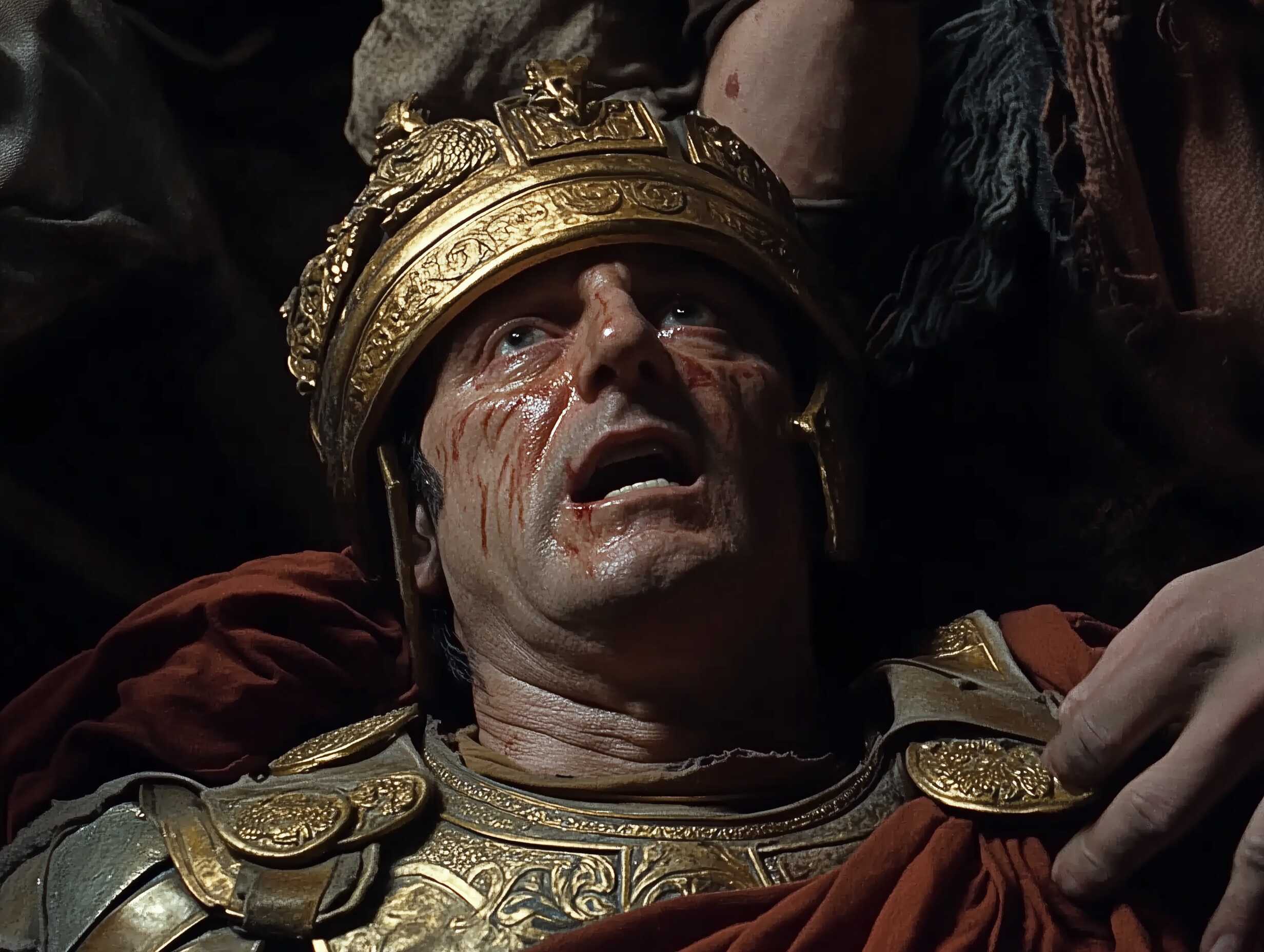
Plutarch echoes this view, emphasizing Galba’s uprightness while blaming corrupt advisors and a morally decayed society for his demise: “He was indeed among the troops and legions an upright ruler upon the antique model, but his reliance on others ruined him.” Plutarch criticizes the greed of the soldiers who rebelled against him, reflecting his Platonic ideals of virtue.
Suetonius adds nuance by blending rumor and fact, noting Galba’s reputation for “greed and cruelty” before he reached Rome. He subtly critiques Galba’s financial policies, calling his decision to recall Nero’s gifts an act of hypocrisy: “There was nothing (Galba implied) he would not allow for his companions.”
Unlike Tacitus and Plutarch, Suetonius refrains from moral judgment, letting the emperor’s actions speak for themselves. Josephus, though focused on Vespasian, portrays Galba as a peripheral figure whose brief rule signaled the instability that paved the way for Vespasian’s rise. His account offers little character analysis but situates Galba within the broader chaos of the year.
Otho: Redemption Through Sacrifice
For Tacitus, Otho’s life embodies paradox. Initially characterized as dissolute and ambitious, he demonstrates surprising responsibility and leadership upon becoming emperor.
Tacitus praises his selfless decision to commit suicide after defeat at Bedriacum, stating, “By his death, he earned greater praise than he did by his life.” This act, intended to spare Rome further bloodshed, reflects Tacitus’s nuanced view of Otho as both a usurper and a redeemer.
Plutarch similarly focuses on Otho’s moral growth, highlighting his transformation from a frivolous youth to a leader who prioritizes the common good. Otho’s final words, “I can die with more honor than I can reign,” underscore Plutarch’s admiration for his ultimate sacrifice.
…”Then, when the man had gone out, with both hands he held his sword upright beneath him, and fell upon it, giving but a single groan as he felt the pang.
The servants outside heard his groan and raised a wailing cry, and at once the whole camp and the city were filled with lamentation.
The soldiers, with loud cries, burst in at the door, and then bewailed their emperor, full of anguish, and reviling themselves because they had not watched over him and prevented him from dying in their behalf.”
Plutarch, The Parallel Lives
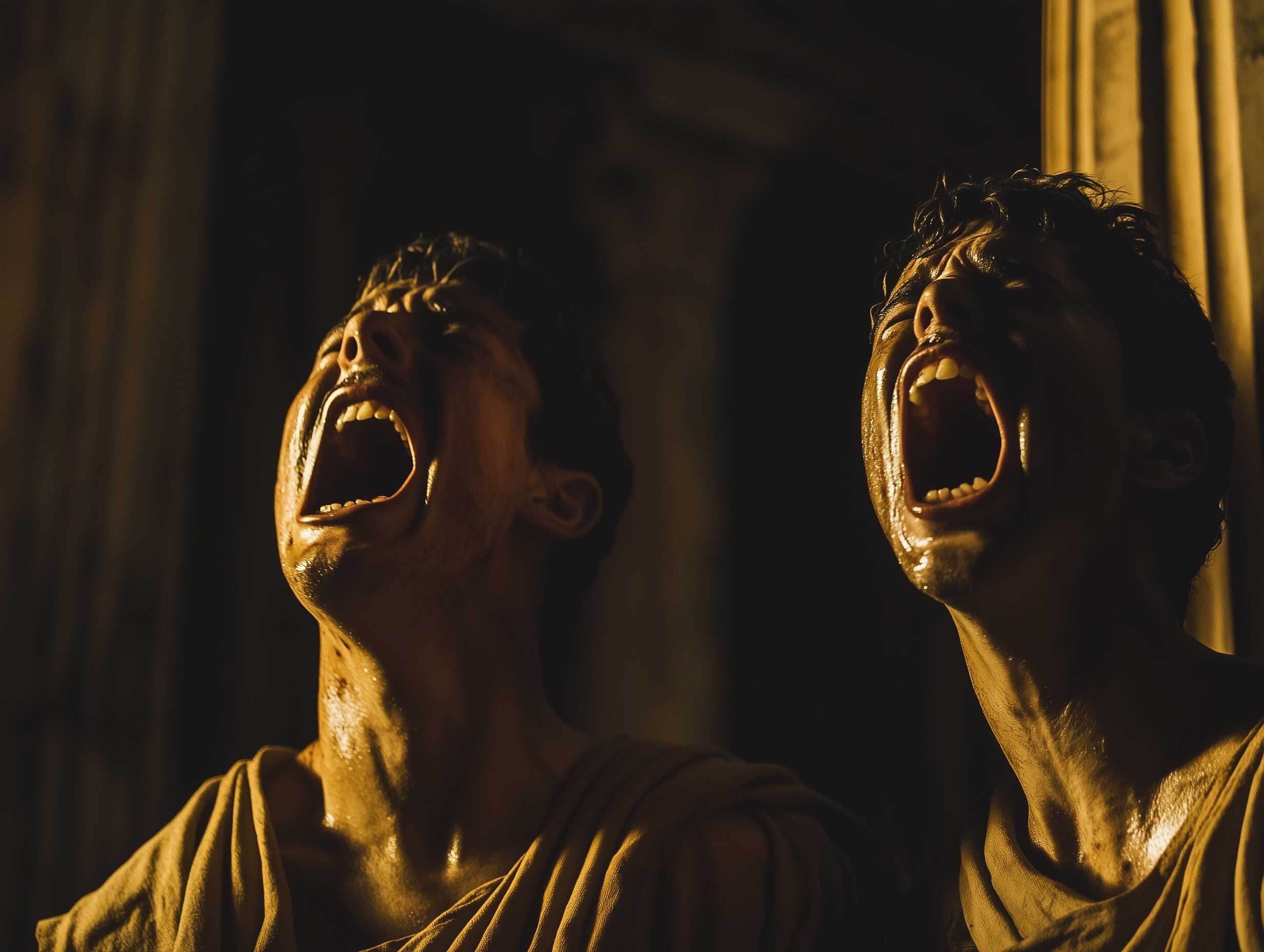
Suetonius offers the most favorable portrayal, likely influenced by his father’s service under Otho. He emphasizes Otho’s distaste for civil war, stating that he “would rather fall in battle than see Rome suffer.” Suetonius’ detailed account of Otho’s suicide, including his reluctance to endanger loyal soldiers, reflects a rare instance of direct judgment.
Josephus discusses Otho primarily to contrast him with Vitellius. While acknowledging his military failure, Josephus portrays Otho’s death as honorable and necessary for Rome’s stability.
Vitellius: Weakness and Indulgence
Tacitus delivers a scathing critique of Vitellius, portraying him as a gluttonous and ineffectual ruler consumed by personal indulgence. He highlights Vitellius’ inability to inspire or control his soldiers, noting that “the Principate for him was a banquet, not a burden.” Tacitus links Vitellius’ excesses to the broader moral decay of Rome, underscoring his unfitness for leadership.
Plutarch, though his biography of Vitellius is lost, characterizes him briefly as weak-willed and easily swayed by external forces. He notes that Vitellius initially resisted power but succumbed, “persuaded by drink,” to accept the title of emperor. This depiction aligns with Plutarch’s moralistic focus, portraying Vitellius as a victim of his own vices.
Suetonius reinforces this view with vivid anecdotes, describing Vitellius’ passive ascension: “He was suddenly seized from his bedroom and declared emperor.” Suetonius’ account of Vitellius’ quip at Bedriacum—“A dead enemy smells good, and a dead citizen even better”—serves as a sharp indictment of his callousness and unsuitability for rule.
“When he came to the plains where the battle was fought and some shuddered with horror at the mouldering corpses, he had the audacity to encourage them by the abominable saying, that the odour of a dead enemy was sweet and that of a fellow-citizen sweeter still.
But nevertheless, the better to bear the awful stench, he openly drained a great draught of unmixed wine and distributed some among the troops.
With equal bad taste and arrogance, gazing upon the stone inscribed to the memory of Otho, he declared that he deserved such a Mausoleum, and sent the dagger with which his rival had killed himself to the Colony of Agrippina, to be dedicated to Mars.
He also held an all-night festival on the heights of the Apennines.”
Suetonius, The Lives of the Caesars
Josephus condemns Vitellius’ reign as emblematic of Rome’s decline, describing his soldiers as avaricious and unruly. He contrasts Vitellius’ chaos with Vespasian’s order, further legitimizing the latter’s rise.
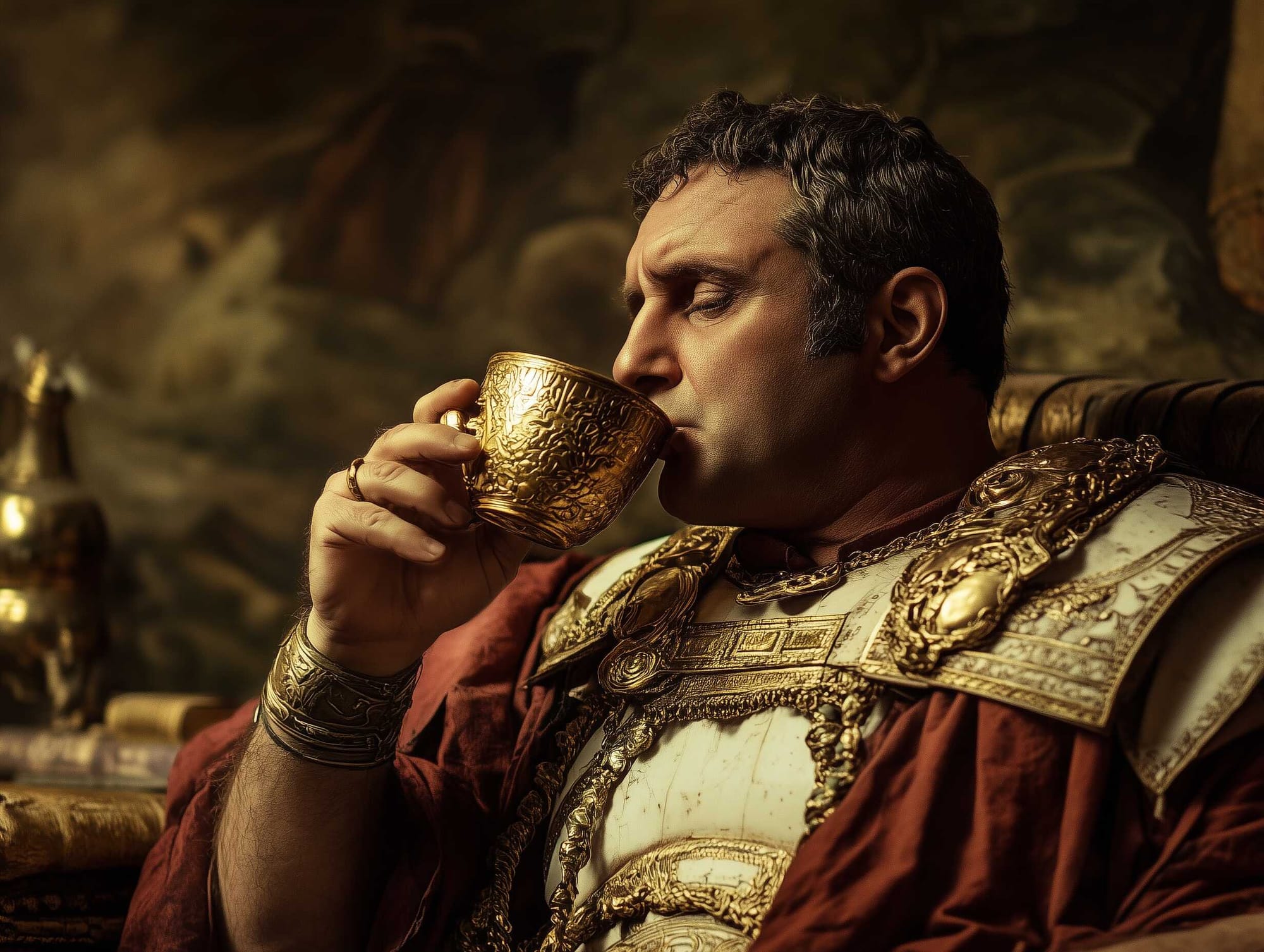
Vespasian: The Pragmatic Reformer
Tacitus portrays Vespasian as a reluctant yet pragmatic leader who restored stability to Rome. While his account is incomplete, Tacitus credits Vespasian’s commanders, such as Antonius Primus, for securing his victory. He acknowledges the moral ambiguities of Vespasian’s ascent but views him as the best option for Rome’s recovery.
Josephus, writing under Flavian patronage, emphasizes Vespasian’s legitimacy through divine providence. He recounts his own prophecy: “You, O Vespasian, are Caesar and emperor,” aligning Vespasian’s rule with fate and necessity. Josephus praises his foresight in prioritizing Rome’s stability, contrasting him with Vitellius’ corruption.
On a personal note, he was captured by Vespasian during the Jewish revolt, and sought to demonstrate his value to the Roman general. In a private conversation, Josephus reportedly proclaimed a divine revelation, stating:
"You imagine, Vespasian, that in Josephus you have merely captured a prisoner, but I bring you greater tidings.
If I had not been sent by God, I should have accepted death, for I know well enough the Jewish Law and how generals should die.
Are you sending me to Nero? Why? Will those that come after Nero, and before you, keep their inheritance for long?
It is you who will be Caesar, Vespasian, and emperor, you and your son here.
Shackle me now with greater care and keep me under guard for your own sake, for you, Caesar, will be not only my master, but master over land and sea and every nation of mankind, and I ask for the penalty of still harsher captivity if I prove to speak rashly of God’s will."
Josephus, The Jewish War (Bellum Judaicum)
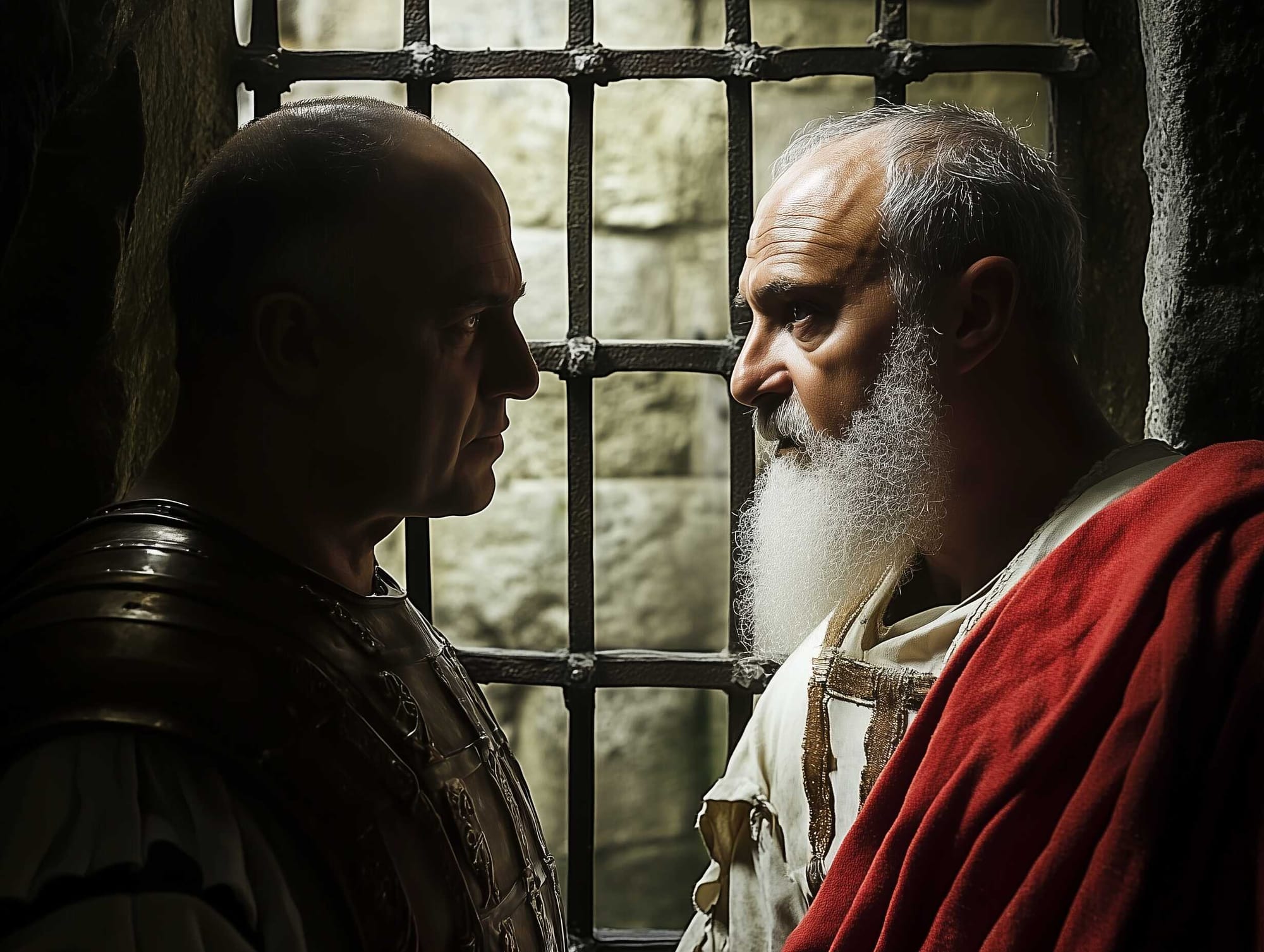
Plutarch, though he did not write a biography of Vespasian, likely viewed him favorably as a ruler who restored order. His moral framework aligns with the idea of Vespasian as a stabilizing force. Suetonius focuses on Vespasian’s practical governance and his ability to rein in excesses. While critical of certain methods, Suetonius highlights Vespasian’s moral strength and reformative leadership.
All in all, The Year of the Four Emperors was a defining moment in Roman history—a stark reminder of the volatility of power and the price of political ambition. It laid bare the fragility of Rome’s imperial system while also showcasing the resilience of its institutions. Out of the ashes of civil war, Vespasian emerged as a stabilizing force, ushering in a period of recovery and growth under the Flavian dynasty.
This extraordinary year, with its vivid personalities, dramatic battles, and far-reaching consequences, continues to captivate historians and readers alike. It stands as a sign of evidence to the enduring complexity of the Roman Empire and the lessons it holds for leadership, stability, and governance.

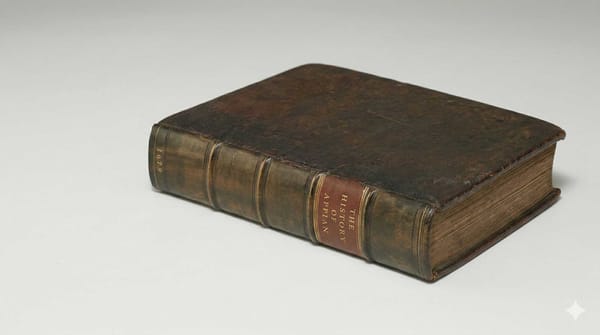

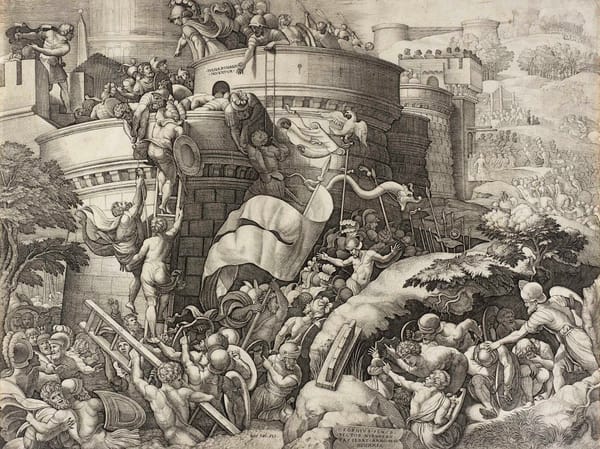
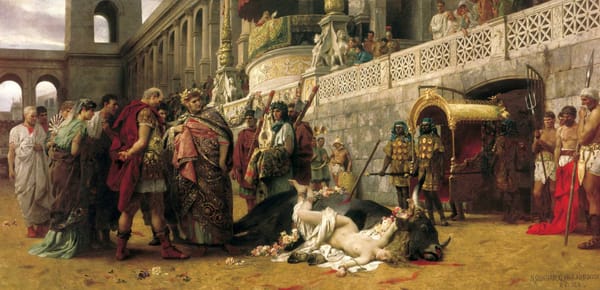
About the Roman Empire Times
See all the latest news for the Roman Empire, ancient Roman historical facts, anecdotes from Roman Times and stories from the Empire at romanempiretimes.com. Contact our newsroom to report an update or send your story, photos and videos. Follow RET on Google News, Flipboard and subscribe here to our daily email.
Follow the Roman Empire Times on social media: